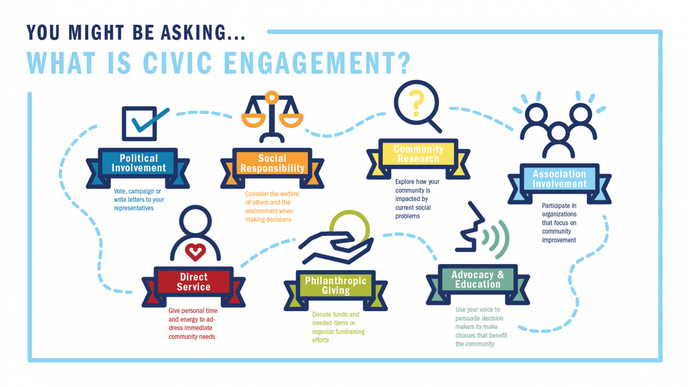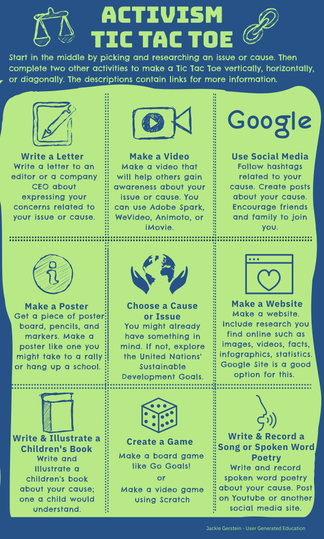|
Civic Engagement means "working to make a difference in the civic life of our communities and developing the combination of knowledge, skills, values, and motivation to make that difference." NY Times.
Civic engagement includes actions such as voting, volunteering, attending town hall or neighborhood meetings, serving as an AmeriCorps member, and advocacy & activism. In order to be able to successfully engage with your community, there are certain social and emotional skills that people need to develop and acquire. For instance, you would need to be able to communicate effectively with people who may be different from you, or you would need to be able to resolve conflicts in nonviolent ways. Integrating SEL & civic learning in schools is easy and beneficial. When students develop their own self- and social-awareness to analyze and reflect on issues they care about in their schools and communities, they are more likely to become interested in learning about these topics. When students develop the relationship skills necessary to be able to work in a team and have important conversations, they're more likely to succeed in becoming civically engaged within their own community. Below are resources to learn more about Civic Engagement and SEL: You Can't Have Meaningful Civic Engagement Without Social and Emotional Skills SEL & Civic Learning Prepare Students for Civic Engagement Through SEL The Future of Civic Engagement is SEL by Committee for Children
0 Comments
Leave a Reply. |
AuthorWrite something about yourself. No need to be fancy, just an overview. Archives
June 2022
Categories |



 RSS Feed
RSS Feed